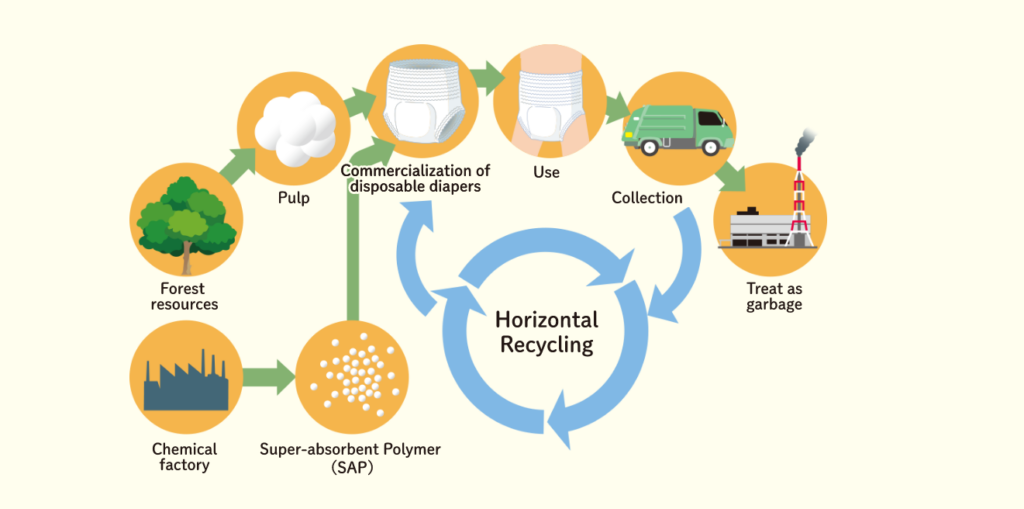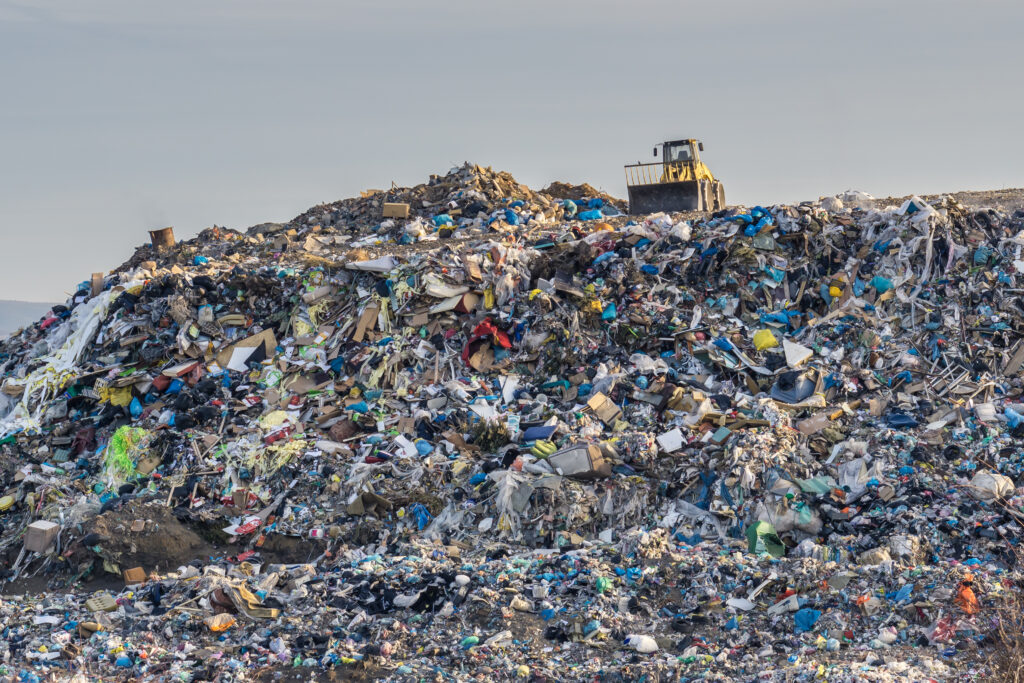The Mainichi Shimbun newspaper reported that the company, which is headquartered in the south-western prefecture of Kagoshima, put the adult and baby nappies on sale this month in shopping centres in Kyushu in collaboration with the region’s local government.
A packet of 42 diapers for children costs 1,078 yen (£5.64) and are reportedly more expensive than the company’s regular disposable ones.
Process
Unicharm has stated that it aims to address the “resource scarcity and environmental concerns” associated with disposable diapers through horizontal recycling.
This method allows limited resources to be reused, thereby reducing the demand for wood pulp and petroleum-based materials.
The process begins with used disposable diapers being dewatered, crushed into small pieces, and then washed to remove contaminants. These diapers are then separated by material.
Although some dirt and odours may persist at this stage, the extracted pulp undergoes ozone treatment for sterilisation, bleaching and deodorisation. This ensures that the material is returned to a safe and clean condition, ready to be used again in the production of new disposable diapers.
Through this approach, Unicharm aims to minimise waste and maximise resource efficiency in the diaper manufacturing process.
‘Transform’
Tsutomu Kido, senior executive officer of Unicharm, reported to Mainichi: “We would like to transform a resource-intensive standard to a cyclical one. We have received approval from experts concerning the hygiene.”









Subscribe for free